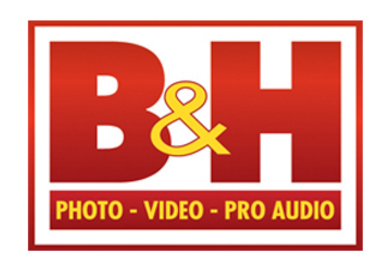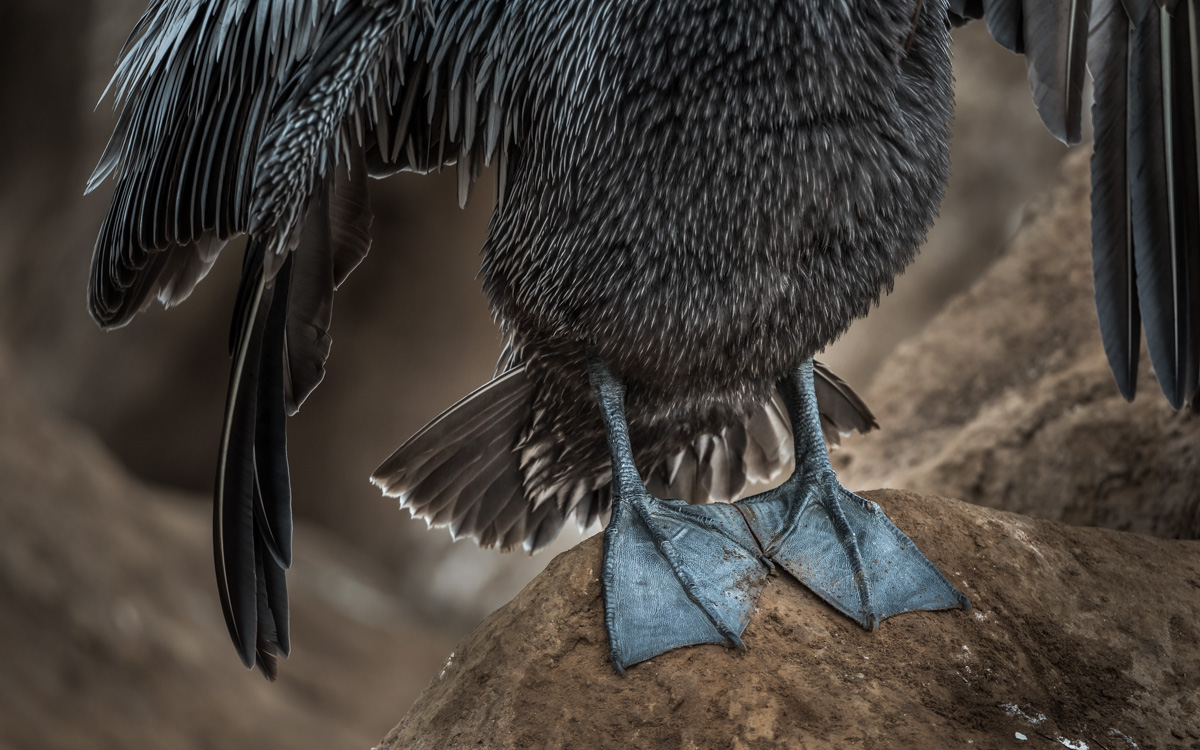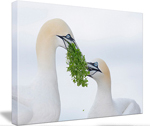What’s Up?
Tuesday was an artie holiday: no swim, no ice bath, no exercises. Jim and I left for Melbourne at 2pm and met some of the camera club’s boys and girls for an early dinner.
Patrick Sparkman’s 70-300 sold on day two for the full asking price. He’s hot.
The program at the Camera Club of Brevard was received tremendously well. With 175 folks in attendance the place was packed and I was right on my game. I judged a club contest with “Shadows” as the theme. There were lots of excellent images and folks loved my critiques of some of the images, even the winners.
I started off with lots of stories to set the scene for “A Bird Photographers Story” and then got into a smooth and easy flow as the audience joined me on my various trips to great places. Along with more than a few educational tidbits. All of my standard jokes got the expected laughs and I came up with quite a few new good ones. The folks met my two wonderful daughters and their kids and got to know me a bit as well. All in all it was a great night.

B&H
B&H contributed generously as the primary SDNHM exhibition sponsor. Thank them (and me for the blog) by clicking on the logo link above to shop.
|
This image was created at La Jolla, CA the day after the IPT ended by BPN member Adhika Lie with the hand held Tamron SP 150-600mm f/5-6.3 Di VC USD Lens for Nikon (at 500mm) and the Nikon D750. ISO 2000. Center-weighted average metering -2/3 stop: 1/500 sec. at f/6.3. Image courtesy of and copyright 2016 Adhika Lie. |
Learning to Do a Formal Image Critique
I have run into lots of folks who state plainly, “I do not know how to do a critique.” Or, “I am not qualified to do an image critique.” I always beg to differ.
After looking at an image, simply ask yourself, “What do I like about this image? “What do I not like?” Begin your critique with either or both. It is usually best to start with at least one good point, even if an image is basically terrible. State what you like and what you don’t like and why.” Then study the image design and consider the plusses and minuses. Let the photographer know how they might have improved the image design either in the field by pointing the lens a bit differently or in post processing by suggesting a different crop. Let folks know why you think that a change in perspective might have been better: “If you had moved left and gotten a bit higher….”
Is there anything in the image that you find distracting? State it and suggest a possible solution either in the field or at the computer.
Now move on to some of the technical aspects of the photo. How is the sharpness? The exposure? The image quality?
Here are three important things to realize about critiquing.
1: Typing “Great shot!” is not a critique. If you really love an image, simply state that but let folks know why, what you find exciting or dramatic or interesting about the image.
2: A good critique does not necessarily need to include at least one negative. If you think that it’s great and can find nothing wrong with it, just say that while letting folks know exactly why you feel the way you do.
3: It is fine to be frank. There is no need to be rude or nasty.
Your Turn
All are invited to critique todays’ featured image. Don’t be shy. All comments are welcome.
Please Remember to use our Affiliate Links 🙂
To show your appreciation for my continuing efforts here, we ask, as always, that you get in the habit of using my B&H affiliate links on the right side of the blog for all of your photo and electronics purchases. Please check the availability of all photographic accessories in the BIRDS AS ART Online Store, especially the Mongoose M3.6 tripod heads, Gitzo tripods, Wimberley heads and plates, LensCoats and accessories, and the like. We sell only what I have used, have tested, and can depend on. We will not sell you junk. We know what you need to make creating great images easy and fun. And we are always glad to answer your gear questions via e-mail. I just learned that my account was suspended during my absence; it should be up and running by Monday at the latest.
I would of course appreciate your using our B&H affiliate links for all of your major gear, video, and electronic purchases. For the photographic stuff mentioned in the paragraph above we, meaning BAA, would of course greatly appreciate your business. Here is a huge thank you to the many who have been using our links on a regular basis and visiting the BAA Online store as well.
Be sure to like and follow BAA on Facebook by clicking on the logo link upper right. Tanks a stack!
Typos
In all blog posts and Bulletins, feel free to e-mail or to leave a comment regarding any typos or errors. Just be right 🙂















Ok, I will bite with the potential to get bitten back. 😉 While I generally try to get eyeball shots, feet can be pretty cool too. I like the color and detail of the feet, and it is obvious that the photographer wants to show that feature of the pelican. I like showing the wings. It reminds me of a lady pulling up the bottom of a long dress to show her shoes off. I also like what appears to be back-lighting of the tail feathers.
If I could have moved, I would have moved right to square up the bird and feet a little more to the camera. This would have also moved the more in focus background on the right out of the frame. I would have pointed the camera to the right to get a little more of the right hand wing in the frame and less blank space on the left side of the frame (This is right to my view, not from the birds perspective). If I were to change this image, I would crop from the left to just touching the vertical primary feathers. The crop would still be a little bit rectangular, and the feet would be centered in the bottom third of the frame. This would maintain that “look at my new shoes” feel. I might remove the guano spots, but they don’t really bother me. I might raise the exposure slider a little as well.
Well done Patrick. Honest critiques done gently as yours was will only get bitten by folks who take things personally… a
I do not think every photo has to show the bird’s head, despite the focus on the eyes in most wildlife photography. You have created some great abstracts of penguins, etc, that exclude the head and lead to highlighting other features of the bird without the eyes to draw the attention away from them. I really like how these images cause us to see those features in new ways and appreciate them. That said this image does not really work for me. I am too bothered by the sense that the head is cut off and the composition just does not flow the way many of your other abstract bird images do. It might be better with tighter cropping, but then its just a picture of some feet and does not really tell a story or open our eyes in new ways. It might have been better to use a higher angle to isolate the feet more and give us some more form to look at, but at some point the bird’s breast would get in the way. I guess I just feel that the composition is not strong enough to make this a strong image. I hope these comments come across as my frank opinion, and not rude or nasty!
Thanks Mike. Your critique was excellent even though we feel differently about the image. I will say that those blue feet are pretty special 🙂 a
When I first looked at this image I though, “oh, another foot image; and the breast feathers are out of focus.” But then, as I looked at it longer, I liked it more and more. And the breast feathers that are “slightly” out of focus don’t bother me at all. The light/dark, light/dark feathers keep my eyes moving into the image. I really like the bluish feet and they make the image. I would not crop out the wings because they do draw me into the feet. I would crop the left side of the photo up to the wing and then I’d burn in he lighter area of the wing, just a little. I would also darken the area beneath the tail, making sure that the white tail edge stays white–I like that a lot. I would spot out the guano on the edge of the rock. I really like the image–it has definitely grown on me.
Well thought out and well stated. And I agree with you, but only 100%. a
Hi Adhika and Artie,
Looking at the above image I like the idea of a bird abstract, which shows good thinking. I love the detail in the feet, legs and belly feathers. The exposure seems good with detail throughout, soft light seems to have helped, the depth of field is also reasonable.
What I am less taken with is the angle of capture, the bird is turned away slightly from the photographer and without a head and eye to re-engage the viewer it doesn’t quite sit right with me. Also the brighter wing feathers at the upper left, and dark partial wing top right, both draw my eye away from what I assume is the point of interest; the blue feet and legs.
The image could have been improved by moving to the right (to get square on to the bird) and getting closer/ zooming out to 600mm and filling the frame with the feet, legs and soft belly feathers with the nicely fanned tail either side and the earthy rock at the base. Would probably keep in portrait format but could also try a vertical whilst at it. 🙂
Hope this helps, Julian.
Hey Julian, Well done and thanks for sharing your thoughts gently. a
I love the image and agree with everything that Elinor said. I think the colors are outstanding…the earth tones of the rocks, the black of the bird and then the beautiful blue of the feet. My eye flows easily from left to right and the bird’s left wing keeps me in the photo.
Hi CC, We are on the same page 🙂 a
Hi Artie,
With this image I am immediately drawn to the feet.
They look a bit blue however this may just be a trick of the lighting as they are likely more black than blue.
I saved the image and worked on a different crop just to highlight the feet, lower belly and the nicely fanning tail.
I lightened the overall exposure which
seems to give more weight to the blue colour on the feet.
The tighter crop helps to elimate some of the guano on the rock.
What’s left doesn’t bother me as its not distracting.
I will email you my take on the image as my way of answering the question… How could the image be improved.?
A nice image by Adhika.
Regards
DP
Hey David, Thanks for you excellent critique and for your repost. It was a bit too big of a crop for me. later and love, artie
I think I might try to crop out from mid-belly up and also both wings, leaving just the feet, tail, and rock–then I’d probably spend hours or days deciding if I liked that or not 😉
Thanks. That is an option. artie
Just for the record books, both species of cormorants in San Diego have black feet not blue feet… What bird is this? artie
OK, my go. I appreciate the crop offering a different view of this bird than we normally see photographed, as others have said. I find the right wing more distracting than the left. In fact, when I first viewed the image, I could not resolve exactly what I was seeing on the right. I would like to see a specifically tighter crop that eliminated the right wing altogether, but left the feet, tail, belly, and left wing as shown. That would place the feet more to the right and will admittedly give an unsymmetrical image, with only one wing showing. But I think I would like that better.
So the wing on the right, not the bird’s right wing 🙂
a
I could see this image cropped as a square with just the underbelly, tail and feet and excluding the wings. As others have commented, the cropped or framing seems vague with a lack of focus. I also thought at first that it might be a blue-footed boobie except they aren’t black. Exposure, focus are all great but I think I would have tried to draw the viewer more toward the feet.
Thanks Ron for your well stated critique. artie
I think that the feet & legs are so interesting that a horizontal crop of just the feet, the legs & the tail feathers would make a great composition.
As above, Helene, that is an option. artie
To me, this is a photograph of the Cormorant’s feet, and I love them. Good exposure and sharp. The rest of the image really doesn’t add much to the story in my mind. I would do a much tighter crop of the feet, removing the wings and upper belly. In order to give the right perspective of image, it may mean some of the left side of the tail would also have to go, just not sure how much. That my attempt!
Thanks Frank. Left side of the tail??? Cormorant??????
later and love, artie
Artie: Adhika Lie has a good eye and captured the bird’s striking blue feet. (At first I thought it was a blue-footed booby!) But now one needs to ask what is the most interesting part of the image and emphasize that. For me, it’s the feet. So I’d either crop moderately, allowing just enough of the wings to remain to provide a frame, or crop more tightly leaving the downy dark feathers of the belly, the nicely spread tail, and the feet as the main features of the image. Of course I can’t see what’s not in the image and so I don’t know if a wider framing would have been more effective. But I assume Adhika Lie had a reason for framing the bird this way and so assume wider wouldn’t have been as good.
One more thought. It’s possible, maybe likely, that the crops I’m suggesting would result in a square or nearly square image. I know that I, and I’m guessing other photographers as well, too often get locked into the standard 3:2 format without exploring different framing proportions. I find that using different proportions can be quite rewarding at times.
Nice picture of the feet very symmetrical but the wings on the side are a distraction i would crop them out.
The wings on both sides or one? a
Sorry on both sides Thanks
j k, see my repost on Friday… a
Here’s my attempt:
To me, the technical aspects (exposure/sharpness/etc) all look right on.
I do think the crop is kind of “in-between.” The most immediate distinctive things about cormorants in my mind are the wing-drying posture and the distinctive colors/features of their eyes and face. Focusing on the feet (as in this picture) is great, and highlights a very cool/distinctive color feature of the bird that is not one of the standard cormorant features that typically draw one’s eye.
The crop includes enough of the wings to show the posture, but not enough to highlight it. The way the right side of the image cuts off one wing is distracting. I think the picture would benefit from either a tighter crop (just the feet/rock/tail) to really focus on the cool feet; or a looser crop (though that would probably be a more boring/familiar standard cormorant shot).
gah. embarassing – I got us on the cormorant tangent.
Definitely not a cormorant, though the posture sure made me think of one.
In any case, I still think the blue feet are fascinating – I couldn’t have recalled the foot color of either a cormorant or a pelican, which highlights my feeling that the feet should be the focus of the photo.
Thanks for sharing your thoughts. You are forgiven for getting us off on the cormorant trail 🙂
a
The unusual lighting is the first thing to grab my attention. It’s beautiful. I like the unique cropping to show the bird’s blue feet. Also like seeing the complete (as far as it goes) left wing while seeing just part of the right wing, and the angle instead of straight on. In other words, a stunning composition. Out of focus background works well. But upper chest could be sharper. I wonder if a smaller aperture for the chest would have put too much detail in the background? Maybe putting the focus point on the upper chest would have worked better, even at the same aperture? Composition of color is beautiful too with the blue feet standing out from all the other dark tones.
Hi Elinor, I think that your critique was closest to mine…. Too many folks are getting left and right wings confused here 🙂 The somewhat lack of sharpness on the upper breast did not bug me at all. a
Gonna make my try, as with it were my image.
I really like the details, the sharpness, color, the exposure seems to be on point. But I don’t understand the crop. There is nothing that stands out in this image that this crop favors.
Things I’d love to know: why did he shot this bird on an angle, and not sensor aligned? Why the tight crop removing the right side wing from the picture.
I think he should’ve removed the white spots in the rock, it is distracting and offers nothing to the overall image.
Though we disagree in principle, I appreciate your honest and well done critique. artie
Ok, I’ll try.
I’m a little disconcerted by the lack of a head, however it is still a great image.
I really like the feather detail especially on the left and on the stomach. The upper chest area seems a little soft, perhaps out of focus or motion blur, I can’t tell.
The feet area really interesting and could be the subject of an image on their own.
I like the back lighting that gives great separation between the subject and the background but feel the background is a little busy and distracting. Darkening the area below the tail and the area on the right might help.
I’m undecided about the guano, perhaps better cloned out.
Hey Gary, Well done. For me, the feet are the subject and I love the framing (but for a small but needed crop from our right). The softness of the upper breast feathers is minimal and does not bother me at all. artie